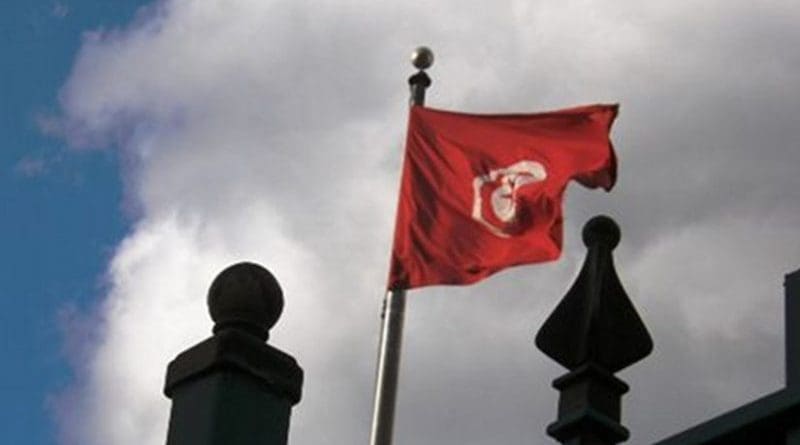Tunisia Elections: Upholding Secularism? – Analysis
By Dr. Mohammed Zahid
The Tunisian elections have courted much interest, with the elections viewed as another piece in the Arab Spring. The elections have received much praise because of the 90 per cent voter turnout and the transparent manner in which the elections were conducted.
The official results are expected soon, but it is predicted that the Islamic party ‘Hizb el Nahda’ (The revival party) has won the largest share, estimated to be around 30-40 per cent of the seats, with the rest scattered amongst the secular opposition.
Despite the media gloss concerning the elections, a number of issues have been overlooked that puts a dark cloud over the elections and the short term future in Tunisia.
The much touted 90 per cent voter turnout, seems to be somewhat misleading, with no consideration given to the percentage of the population that did not participate in the elections. Tunisia has a population of 7.2 million, and of that 4.1 million registered to vote, which is approximately 57 per cent of the electoral register.
Of the 4.1 million registered voters, 90 per cent participated in the election day meaning that at least 51 per cent of the population are as of yet confirmed to have actually participated in the elections.
Prior to the elections, Tunisian political blogs were extremely active, with many of the youth who participated in the removal of Ben ali, being extremely pessimistic over the elections, given that many former members of the Constitutional Democratic Rally (CDR) had formed new parties and joined existing parties to participate in the elections.
This scenario is no doubt dishonest to the revolution as former cronies that oppressed and robbed the people are re-entering the political system from the back door, as no restrictions were put on their participation by the interim government.
The interim government has defended this criticism on the basis of democracy, claiming that they have given the people the right to keep the cronies out of the political system through the ballot, though this appears quite laughable given that at the same time the interim government put restrictions on the participation of Islamic parties. Only those Islamic parties that vowed to uphold the secular flag were allowed to participate in the elections, with the interim government using a law introduced by the dictator Ben ali to keep out the Islamic opposition that would ditch the secular flag and carry a more comprehensive Islamic programme to the Tunisian society.
It is apparent that the interim government has been far from neutral and more accurately it could be characterised a secular gatekeeper, with it working to maintain the secular character of the Tunisian system rather than trying to meet the aspiration of the people which is an overhaul of the ageing political system.
This objective has not materialised, with many bloggers calling for a second revolution, the first one directed towards removing Ben ali and the second proposed one geared towards the overthrow of the political system.
It is quite disappointing that the Hizb el Nahda has accepted all the discrepancies in the elections and welcomed the idea of a coalition government with the secular opposition, despite the fact the secular opposition is composed of many from the previous regime.
The problem with Hizb el Nahda is that it perceives the entering of parliament, and the formation of a government as being an indication of success, and appears content on working within the remits of the secular political system.
This naivety has characterised many of the Islamic opposition, with co-optation and compromise leading to a shedding of whatever Islamic character that might exist. This is clearly seen in the case of Morocco, were the Islamic opposition has comfortably existed in the political system for years, leading to its further secularisation rather than its injection of Islam into the political system.
Hizb el Nahda is just another party in the list of Islamic parties that continue to be one dimensional and their fate will be the same as others as history and reality indicate.
Dr. Mohammed Zahid is an academic in Middle East politics, with a special focus on North Africa and Islamic movements. He has published widely in peer reviewed journals and provided consultation to a number of governmental bodies and private institutions.

